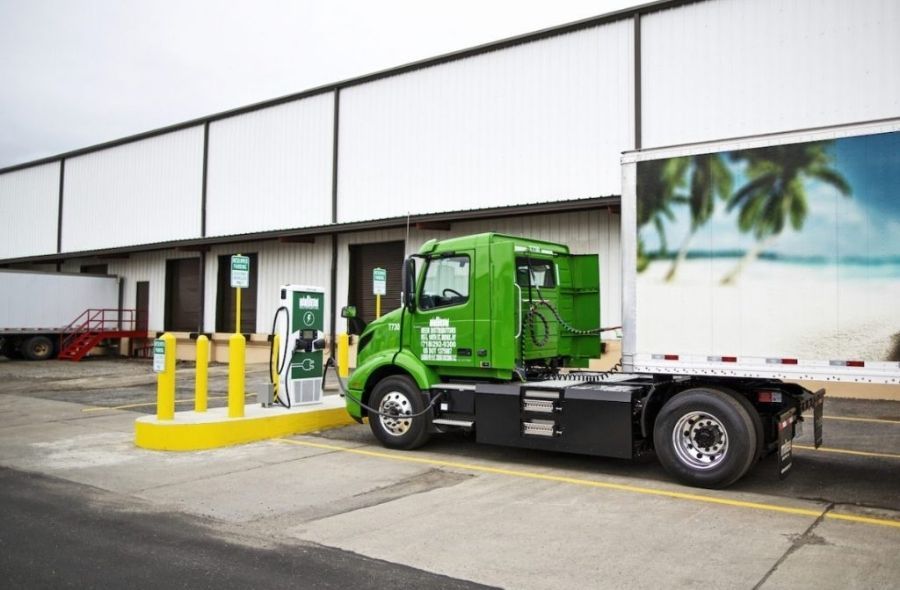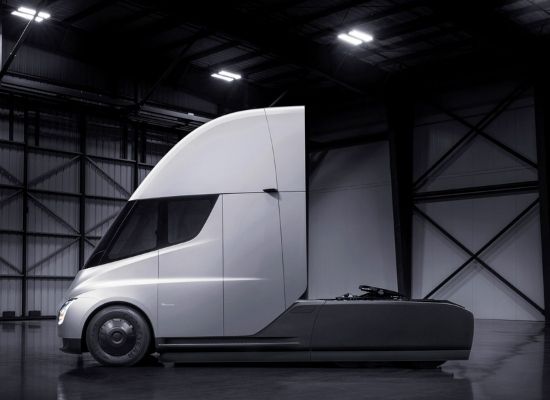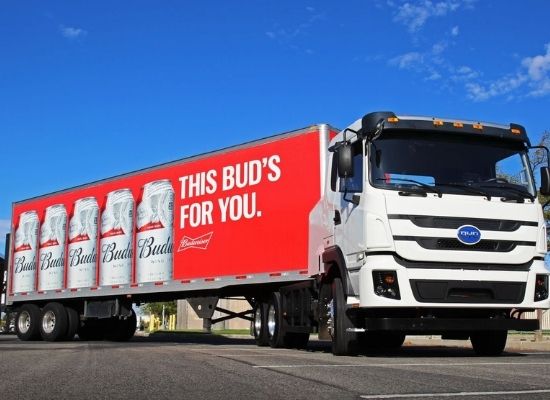May, 2024
San Francisco, USA

Commercial vehicles powered by a battery pack and utilized for cargo transportation are known as electric trucks. Furthermore, compared to diesel trucks, electric trucks have fewer moving parts and do not require multi-speed gearboxes, which lowers vehicle maintenance costs and enhances reliability while emitting nearly no noise. Furthermore, government attempts to promote electric vehicle adoption and its incredible advantages such as gobs of torque, less noise pollution, and lower maintenance costs make electric trucks the favored choice over diesel trucks.
[[relatedPurchasesItems-35]]
According to Jack Symington, a former BYD business development associate, one factor that makes electric vehicles a suitable fit for alcohol beverage delivery is the nature of the industry. "If you're doing urban delivery, where you're not driving more than 150 miles—dropping off beer at a few sites and returning to a distribution center," he says, "a duty cycle matches our trucks." He continues that a truck's weight in the beverage business is always near the maximum permissible level because of how heavy liquid is. "You get a very, very high torque with electric trucks," he explains. Your peak torque is practically attained at a shallow speed. It's similar to riding in a golf cart. This is advantageous when transporting massive cargo in stop-and-go traffic." (Source: SevenFifty)
The global electric truck market was worth $392.29 million in 2020 and is expected to grow to $3,861.81 million by 2030, with a CAGR of 26.4 percent between 2021 and 2030. (Source: Allied market research)
Electric vehicles, such as plug-in hybrid electric vehicles, battery electric vehicles, and fuel cell electric vehicles, are classified as EVs since they employ an electric powertrain and require plug-in charging. The EV industry's long-term sustainability goals include environmental and economic benefits in the ecosphere. Still, widespread adoption of electric vehicles is hampered by significant uncertainty, such as geographic heterogeneity in policy preferences, technological bottlenecks in the supply chain, and upstream and operational emissions. Tesla, Delta Electronics, ABB, Fortum, Volvo, and Nikola Corporation, among others, are the industry's leading electric truck service providers.
According to the reports, zero-emission freight vehicle availability in the United States and Canada is expected to rise from over 70 models from two dozen manufacturers to at least 85 models from over 30 companies this year. Arrival and Rivian, for example, grabbed headlines after announcing major orders and agreements with UPS and Amazon, respectively. PepsiCo, Walmart, Anheuser-Busch, FedEx, DHL, UPS, Sysco, Loblaw, and Pride Group Enterprises are among the companies that have placed pre-orders for the Tesla semi.

Image Source: Wired, Tesla’s Electric Semi Truck
Tesla claims that the semi-electric truck will be able to pull 80,000 pounds and travel 500 miles (805 kilometers) on a charge. Compared to its diesel-powered contemporaries, the truck could even have a higher cargo capacity. It further promised that the electric truck would not break down throughout the first million miles of operation. Through its aerodynamics and powerful electric motor, Tesla Semi claimed to achieve an efficiency of more than 0.80km per kWh.
Anheuser-Busch has placed another order with BYD for 20 electric trucks added to its California fleet later this year. BYD (Build Your Dreams) is the world's largest electric vehicle manufacturer, with proven breakthrough technologies for automobiles, buses, trucks, forklifts, and rail systems, including SkyRail. It's the fourth consecutive order of zero-emission vehicles from various manufacturers. The brewery is putting in a "Zero-Emission Beer Delivery" line.
However, this is Anheuser-Busch's second time deploying BYD. BYD is committed to establishing a genuinely zero-emission ecosystem by developing solar electricity generating technologies, storing energy, and battery electric vehicles that run on that clean energy.

Image Source: Anheuser Busch’s electric truck
As part of a state endeavor to exhibit economically and environmentally friendly warehousing and distribution technology, Anheuser-Busch placed 21 BYD battery electric vehicles in their California fleet in 2019. The company had also ordered 800 H2 trucks from Nikola Motors the year before and another 90 Tesla trucks a few months before.
According to the sources, transportation accounts for 24 percent of greenhouse gas emissions. With ground transportation accounting for 72 percent and rising, stakeholders must increase their engagement and efforts to achieve a green transportation transition. As a result, electric vehicles (EVs) emerged as a strategic alternative for attaining the transportation sector's goals of commercialization, decarbonization, ecological balancing, and technological innovation.
The value of exploiting real-world data and insights to address difficulties and inform future deployments cannot be understated as fleets, OEMs, utilities, charging providers, and legislators attempt to move from demonstrations to large-scale commercial deployments. The sector will need to learn from leaders at the vanguard of innovation to accelerate growth. They'll have to scale best practices while also boosting confidence that, when the rubber meets the road, these cars will be able to meet the freight industry's stringent criteria. Most importantly, the industry will need to collaborate with all stakeholders in the electric truck ecosystem to encourage innovation, collaboration, and the acceleration of the zero-emission goods movement.
Article By Aakriti Rawat, Beverage Trade Network
Header Image Source: Automotive world, Electric truck